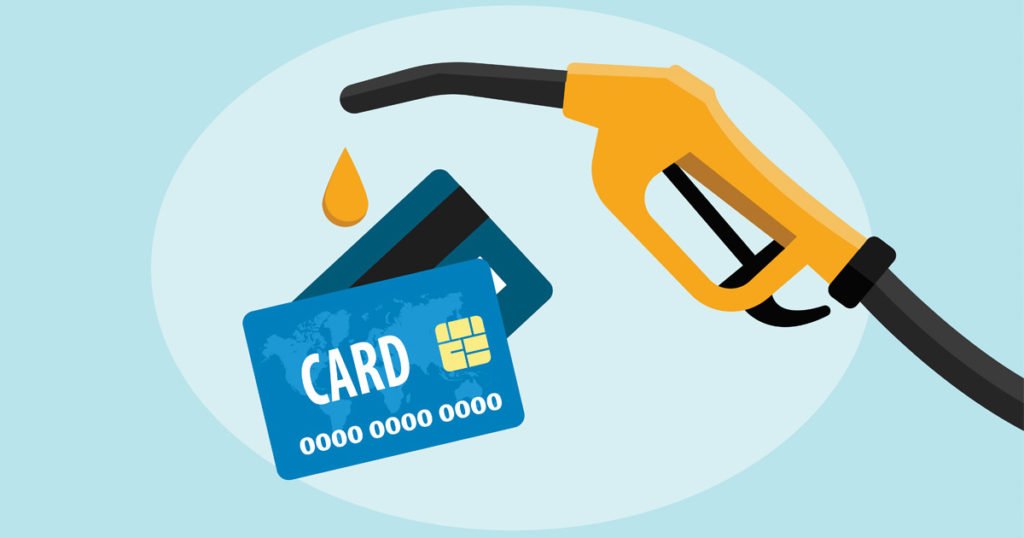Unlocking the Potential of Smart Fuel Cards for Fleet Cost Control
Fleet managers can easily track fuel expense information in a central online platform. This eliminates the need for drivers to collect receipts and cuts down on office staff’s time processing fuel expense reports.
Look for Smart fuel cards that offer enhanced security features like PINs and purchase limits to prevent misuse of company funds. Some card programs also report to credit bureaus to mitigate the risk of fraudulent purchases.
Real-time Purchase Tracking
Fleet fuel cards offer a variety of features that help businesses gain control over one of the most significant business expenses. While most fleet cards only earn rebates or discounts on fuel, they also often include controls and expense reporting tools that business owners can use to manage the card’s use. These tools can help identify potential areas of fraud and theft and can ensure that the correct tax is paid on every purchase.
For instance, a smart fuel card for fleets matched with telematics systems can verify the actual truck location before allowing any purchase to be made by using GPS data from the telematics system. This can prevent drivers from buying fuel they don’t need or filling up a tanker trailer instead of a reefer (refrigerator trailer). Additionally, most fleet cards can set and change spending limits by card and driver. This can prevent drivers from purchasing more fuel than they need and help them avoid costly over-fueling incidents.
Another way to improve fuel efficiency is by optimizing routes with the help of a fleet management solution. By analyzing route optimization data, it’s possible to reduce vehicle idling and maximize mileage and engine performance. Combined with a fuel card that offers telematics integration, this can also help reduce maintenance costs by monitoring and alerting drivers when a vehicle is due for a service.
Real-time Mobile Access
Fleet managers face several challenges in controlling costs, including fluctuating fuel prices. However, intelligent fuel cards can help prevent and reduce operational expenses by providing real-time visibility and control to eliminate inefficiencies and wasteful behavior.
Many of the best trucking fuel cards offer more than just a discount per gallon, including additional savings on purchases like vehicle maintenance plans and convenience store items. They also allow fleets to track and manage expenditures without relying on receipts. Fleet managers can receive notifications and exception reports highlighting unusual activity, such as unauthorized purchases or high-dollar transactions.
Most fleet fuel cards offer more robust purchase data at brand-name stations than traditional receipts, providing level-3 information that includes which card account completed the transaction, driver ID, date and time, truck location, and odometer readings. This can provide insight into driver performance and fuel efficiency, identifying poor habits such as excessive idling, hard starts, and stops that consume extra fuel.
Additionally, fuel card technologies with data-driven fraud detection and controls can significantly decrease fleets’ time each week auditing outlier transactions to identify theft and misuse. By combining with telematics systems, fleets can monitor truck locations and fuel consumption in real-time, increasing route planning efficiencies and reducing engine idling and other unnecessary expenditures. By implementing these fleet fuel management strategies, fleets can lower operating costs, boost productivity, and improve safety.
Exception Alerts
Exception alerts can help control fuel theft and other costly fleet spending issues by detecting out-of-the-ordinary activity. For instance, when an employee can purchase fuel with a card that does not pass proximity validation with the truck (based on GPS), this indicates possible fraud and can be a big red flag for companies.
The best fleet cards offer robust, customizable exception alerts that send notifications via email or mobile app when a specific condition occurs in the field. This can be for driving style and safety (speeding, harsh braking or acceleration, rapid acceleration) or location and activity (when a vehicle starts/stops or goes into/out of a designated area).
When an exception occurs, the notification shows information about what caused it (e.g., a driver reached their speed limit) and who the relevant team member is. It also includes the option to route notifications to services, allowing companies to automate response and escalation procedures based on the severity of an error.
A fleet card with exception alerts is one of the most essential tools for managing your second-largest variable expense, reducing risk, and avoiding unnecessary costs. Look for a fleet card with a powerful online platform, a vast station network, and maximum purchasing thresholds to ensure you’re not overspending at the pump.
Detailed Purchase Information
Fuel cards enable fleet managers to see the whole picture regarding operational efficiency and cost control. With digital tracking, they eliminate the need for manual record-keeping or waiting for drivers to hand in expense reports. The right card solution can also help reduce the risk of fraud with features like fuel purchase controls and driver identification.
Many fuel cards provide a centralized online platform that displays the transaction data, including which driver made each purchase and odometer readings. This information can then be compared to expense reports and driver behavior trends to identify unusual spending patterns and potential fuel theft. Fuel cards also often come with controls limiting maximum daily purchases or setting alerts for specific merchants and times of day to curb unnecessary spending further.
If your fleet operates across state lines, a fuel card can simplify IFTA reporting and automate the process by capturing and reconciling each state’s mileage. By eliminating the need to compare and reconcile receipts and odometer readings manually, it’s easier to prevent billing errors and improve the accuracy of IFTA reporting. For even greater peace of mind, look for a fuel card that provides driver-friendly benefits, like mobile apps and convenient access to account details, to boost employee satisfaction and retention. For example, it offers a single prepaid card for all company expenses, including vehicles and maintenance, offering flexibility and freedom to your team with the added savings benefit.






